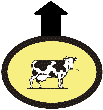
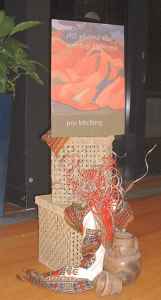 Jackie Litherland, poet and publisher, stood in front of one of Vane Women's habitually evocative stage settings - giant mock-ups of the two latest collections poised atop wickerwork, and coloured weaving, and heavy pottery and could that really be a bar of fruit and nut chocolate? - to introduce poets Lesley Mountain and Pru Kitching. Both were writers with a strong sense of place, perhaps because they were both women who had moved outside the region "and then come back to County Durham, bringing their riches with them!"
Jackie Litherland, poet and publisher, stood in front of one of Vane Women's habitually evocative stage settings - giant mock-ups of the two latest collections poised atop wickerwork, and coloured weaving, and heavy pottery and could that really be a bar of fruit and nut chocolate? - to introduce poets Lesley Mountain and Pru Kitching. Both were writers with a strong sense of place, perhaps because they were both women who had moved outside the region "and then come back to County Durham, bringing their riches with them!"
First to read was Lesley Mountain, who began by saying how delighted she was with the book, both with its appearance (Vane Women's strong sense of design and attention to detail making it a very desirable object) and with the sheer fact of its existence: "I can say I'm a poet now, rather than someone who writes poetry occasionally!"
She chose, for her first set, to read poems linked by the theme of place: perhaps her perceptions of place were more vivid because, as she said, "I had restless parents", and did not feel that she came from anywhere in particular; she was the perpetual outsider, immediately identified by her hard-to-pin-down accent and her fresh way of seeing the familiar. Leicester Station, December 2003 was her response to the challenge to "write an interesting poem about Leicester", while the task of describing herself produced OS 92, in which she writes about herself as if she were a map. Another poem came from an open day at Seven Penny Meadows, a natural burial site near Medomsley in County Durham.
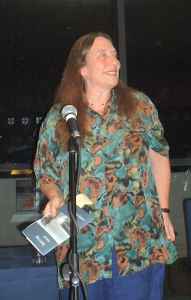 For 30 years, since leaving school, the nearest Lesley came to creative writing was social work reports for court, pleading leniency for boys who'd pinched milk bottles off doorsteps. Then, 7 years ago, after taking an Open College of the Arts course, she started to write poetry and short stories. She won the Gateshead Short Story Competition in 1999 and was a runner-up in The New Writer Poetry (Single Poem) national competition in 2000.
For 30 years, since leaving school, the nearest Lesley came to creative writing was social work reports for court, pleading leniency for boys who'd pinched milk bottles off doorsteps. Then, 7 years ago, after taking an Open College of the Arts course, she started to write poetry and short stories. She won the Gateshead Short Story Competition in 1999 and was a runner-up in The New Writer Poetry (Single Poem) national competition in 2000.
She's written poems on buses and trains, in stewed-tea cafes and in noisy libraries. She's written about rats, landfill, indecent exposure, flying ants, the menopause and Antarctic explorers. She is a member of the High Level Bridge Poets.
She works with people with learning disabilities, improving access to community activities. Any time left over is devoted to a fat elderly horse and a wild garden. She lives in a small ex-mining community called Highfield in the Derwent Valley, between the Metro Centre and Consett.
Lesley Mountain closed her first set with two poems about the fulfillment of an ambition: she had long wanted to go to Appleby Horse Fair, she said, because she loved horses. Eventually she went to the fair with the explicit purpose of writing some poems, perhaps to make a small collection which she might sell through Appleby Tourist Office - but she discovered that faced with the reality of the Fair, she felt too ambivalent about it to produce poetry suitable for selling through the tourist office. Her poem Men Talking revealed that she had seen the event as more of a "festival of men" than a festival of horses.
Pru Kitching also began by addressing "those of you who know how devastating it is to have your first book published." Perhaps because of this emotional response, she had selected for her first set poems on the themes of movement, of loss and of being lost. She started with the evocatively titled All Aboard the Moving Staircase of First and Everlasting Passion, the title poem of the collection: aptly, since it describes her first meeting with her husband whose love and whose death permeate her writing.
Her emotions are strong, but not sentimental; her eye is too sharp for that. The result may be the satirical sketch of Life Class, in which the naked model reclines at ease among the twitchily embarrassed (but fully dressed) artists. But the same sharp observation produces some vivid glimpses of exotic locations, like the Shalimar Gardens of her prose poem, which she described as "a view of Islam that you don't get very often at the moment, it's the passion, it's the beauty..."
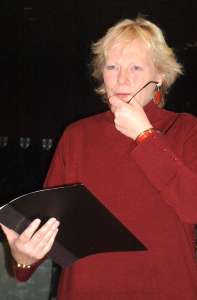 Pru Kitching was born in Sunderland and spent her school years in north Yorkshire and Weardale in Co. Durham. A first degree in theatre led to a "brief and inglorious" acting career, followed by arts administration jobs with English National Opera, Scottish Opera, the Scottish Community Drama Association and Lancaster University.
Pru Kitching was born in Sunderland and spent her school years in north Yorkshire and Weardale in Co. Durham. A first degree in theatre led to a "brief and inglorious" acting career, followed by arts administration jobs with English National Opera, Scottish Opera, the Scottish Community Drama Association and Lancaster University.
She ran away to Copenhagen in 1991 and spent four years there as Secretary General of the International Amateur Theatre Association. During this time she cleaned the office loo and spoke with Ministers of Culture all over the world.
Realising that she could be just as poor but more enriched by pursuing her lifelong obsession with words, she returned to the UK and took the M.A. in Creative Writing at Northumbria University. She is now gently settled in a converted mill in Weardale and working on a series of pieces which follow the tortuous path of the building project, provisionally titled Yesterday Would Have Been a Good Day to Do That.
Pru Kitching does not need to travel abroad to bring the outsider's freshness of vision to bear on her surroundings. The familiar hills of Weardale, where she walks with her border collie, also stimulate her thoughts. March 2001 in Upper Weardale chronicles the emotions of the Foot & Mouth epidemic, the tension as farmers wondered who would be hit next, but also the anger at the way the epidemic was handled; Two Faced builds a fantasy around a cottage made lopsided by a bread oven built into one side, and which therefore, seen from the bottom of the hill, has a "surprised, goosed expression"; and her gloomy thoughts about the war, and the mess that the world is in, seem to be summed up by the place-name Killhope.
Lesley Mountain's second set of poems played with the title of her book as its theme: though she admitted that the title itself, Hunting the Air, was not only mysterious but also, in a sense, stolen property. It had been handed to her in a workshop, during an exercise based on the game Consequences, where phrases were written on pieces of paper and passed on. The enigmatic phrase had stayed with her, and eventually resulted in an enigmatic poem, a rich string of images. "I don't know what this poem is about," she confessed; when she used it in an exercise on how people understand poems, she had been told, variously, that "it's about feminism", "it's about the strength of women" and "it's about an asthma attack".
With this precedent, she introduced a group of poems about the air and all things that fly in it, from flying ants (Consider her Ways) to the kingfisher. Halcyon Days describes her long-held desire to see this bird, associated with the most beautiful spots and clearest water, and how she eventually spotted one in an urban wasteland, which:
... perchedThe same joy in briefly seen birds surfaces in a poem on Take Your Daughters to Work Day - an initiative presumably intended to introduce girls to the possibility of careers outside those traditionally allocated to women, but which has become just one more chore for the working mother. Therefore, says Lesley Mountain, don't do it: mothers and daughters, take the days off together, skive, and enjoy yourselves, and she urges the children:
on the handle of a half drowned
shopping trolley and preened �
show them dippers
ephemeral as emails
...
Daughters, listen!
Take your mothers out to play.
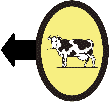
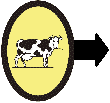
This website is maintained by Cornwell Internet
as part of their sponsorship of the Literature Festival
Last update: 28th October 2004


